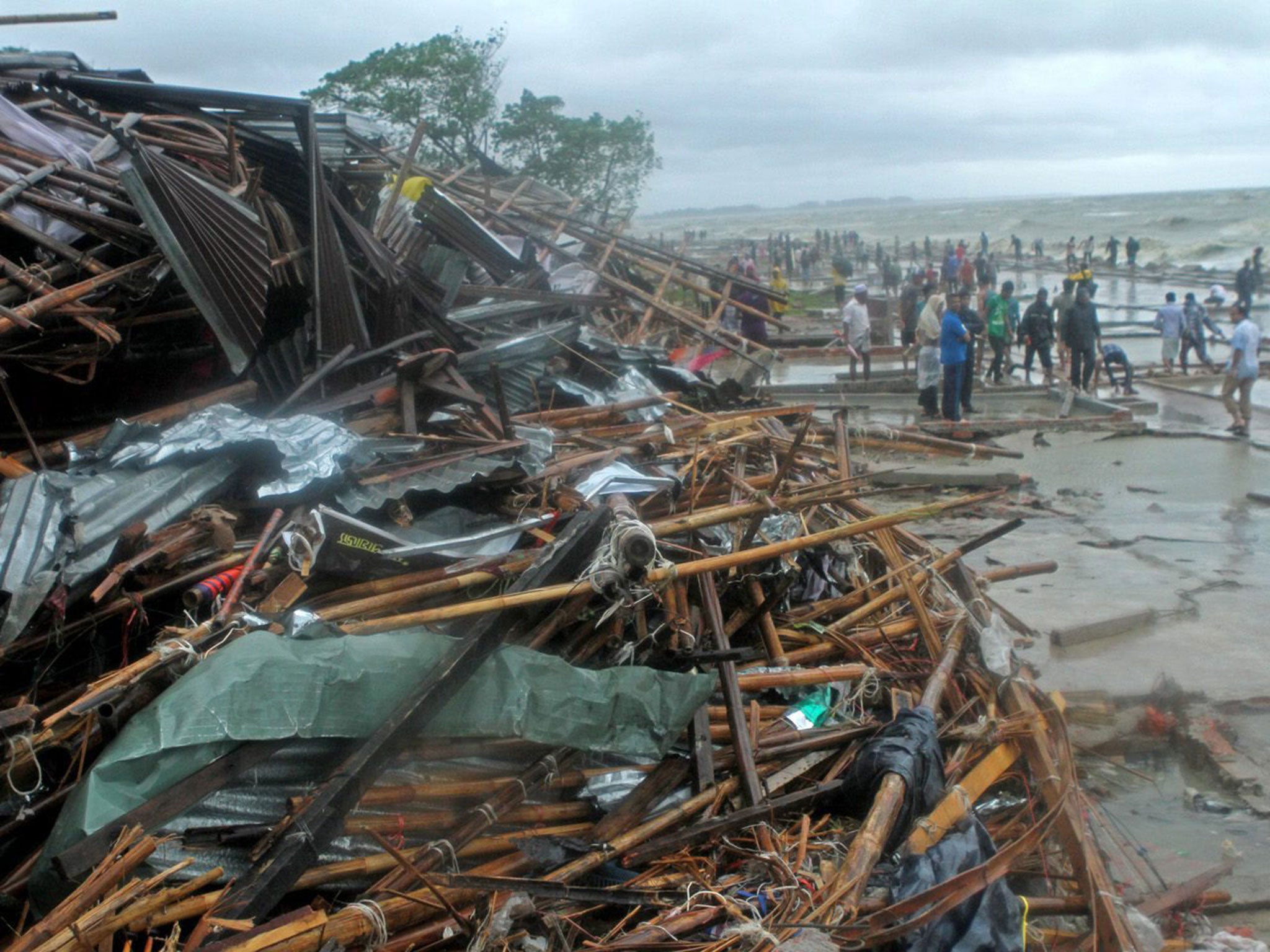Cyclone Roanu: Storm hits Bangladesh causing half a million people to flee
Sri Lanka is also still suffering the effects of the cyclone, which caused heavy rains and flooding earlier this week

Your support helps us to tell the story
From reproductive rights to climate change to Big Tech, The Independent is on the ground when the story is developing. Whether it's investigating the financials of Elon Musk's pro-Trump PAC or producing our latest documentary, 'The A Word', which shines a light on the American women fighting for reproductive rights, we know how important it is to parse out the facts from the messaging.
At such a critical moment in US history, we need reporters on the ground. Your donation allows us to keep sending journalists to speak to both sides of the story.
The Independent is trusted by Americans across the entire political spectrum. And unlike many other quality news outlets, we choose not to lock Americans out of our reporting and analysis with paywalls. We believe quality journalism should be available to everyone, paid for by those who can afford it.
Your support makes all the difference.A cyclone battered coastal Bangladesh on Saturday, killing at least 21 people and forcing around 500,000 people to be evacuated.
The cyclone formed south of Sri Lanka and travelled up the Bay of Bengal, making landfall north of Chittagong, Bangladesh. It has now lost some of its strength and has been downgraded to a tropical depression, but is still causing periodic outbursts of violent winds and rain.
Meteorologists warned there was still a risk of flooding in northeast India and northern Burma.
Disaster Management and Relief Minister in Bangladesh, Mofazzal Hossain Chowdhury Maya, said the authorities had "shifted most of the people who are vulnerable" and added that people were working "all-out" to contain and tackle the damage.
Cyclone winds damaged houses and shops and uprooted trees, while some places were inundated by a storm surge of up to four feet above the normal tidal height, officials said.
Authorities also evacuated people from hilly areas of Chittagong as a precaution against landslides triggered by persistent rain.
Flights were also suspended at Chittagong airport while the Bangladesh Inland Water Transport Authority restricted movement of all ships and ferries. Fishing boats and trawlers were advised to remain sheltered until noon on Sunday.
In Sri Lanka, heavy flooding and landslides caused by days of heavy reain have seen at least 73 people die. Around 120 more are missing and there are fears some could be stuck under metres of mud which swamped three villages as hills collapsed in the central district of Kegalle.
Around 243,000 people across the country were forced from their homes and remained in temporary shelters on Saturday.
In the capital, Colombo, thousands of homes remained inundated with water, although there have been signs the water levels are receding.
Officials said the main priority now is to prevent outbreak of water-borne diseases such as diarrhoea and typhoid.
As civilians volunteered to provide cooked food and clothing to the affected people, foreign assistance began to arrive following an appeal by Sri Lanka's foreign minister. India and Japan sent relief items including medicine, tents, tarpaulin sheets, generators and water purifiers.
Japan will also send disaster management experts to help expedite relief efforts and look at ways to reduce landslide risks, the Japanese Embassy in Colombo said. The United States has announced a three-year project to help Sri Lanka maintain supplies of safe drinking water even during times of drought and flooding.
Join our commenting forum
Join thought-provoking conversations, follow other Independent readers and see their replies
Comments